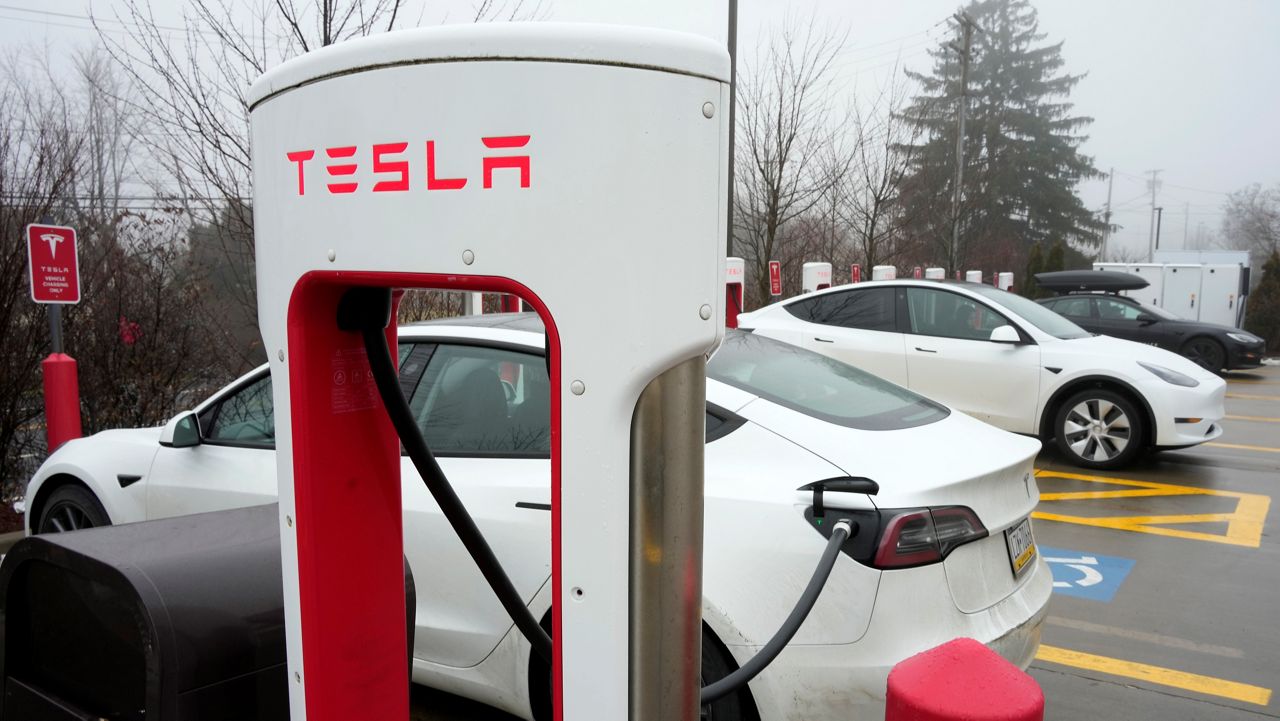Extreme heat can affect how far an electric vehicle travels on a charge. EV range begins to drop at a temperature of about 85 degrees, according to a new study from the Seattle-based battery health data company, Recurrent.
Range decreases an average of 5% at 90 degrees and 31% at 100 degrees, the company found. Recurrent based its findings on EVs reporting their real-world range combined with reported national high temperatures from July 4th.
How much range a vehicle loses in extreme heat varies by model. At a temperature of 90 degrees, the Ford Mustang Mach-E and F-150 Lightning lost the least range — just 1% compared with EPA estimates. The Nissan Leaf lost 22%, the Chevy Bolt lost 9% and the Hyundai Kona lost 5%.
Tesla was a unique case for all four vehicles in its lineup, including the Model 3, Model Y, Model S and Model X. Most Teslas get only 60% of their EPA-estimated range even in moderate temperatures of 60 degrees. From 60 to 100 degrees, their range is virtually the same, the study found.
A 2019 study from the American Automobile Association found that EV range dropped 4% at 95 degrees without using air conditioning and 17% when AC was running.
To help combat range loss, Recurrent recommends pre-cooling a car while it’s plugged in, as well as using sunshades or parking in the shade to help reduce heat. The initial cooldown of a car takes more energy than maintaining it at a comfortable temperature, the study said.
While extreme heat affects the range of many EVs, studies have found extreme cold is more likely to deplete range because the difference in a car’s cabin temperature and outside is greater.



